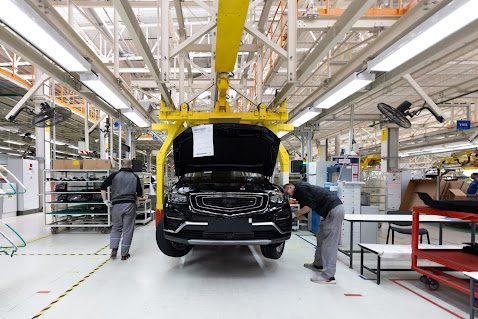The automotive industry is at a pivotal moment. Rapid technological advances, evolving regulatory landscapes, and shifting consumer expectations are transforming vehicles from simple modes of transport into connected ecosystems of mobility. Electric drivetrains, autonomous driving, sustainability goals, and digital interfaces are redefining what a “car” means in the 21st century. Meeting these challenges requires visionary leadership — leaders who not only understand the mechanics of engineering but also the broader implications of technology for society. One such leader is Abigail Mphephu, whose forward-thinking approach to engineering demonstrates how to navigate the complexities of tomorrow’s automotive world.
The Acceleration of Change in Mobility
Traditionally, the automotive sector evolved incrementally. A new model would be released every few years, with modest upgrades in safety, performance, or comfort. Today, however, innovation cycles are faster, driven by software updates, evolving emissions standards, and consumer demand for smarter, more sustainable solutions.
For leaders like Abigail Mphephu, this acceleration presents both a challenge and an opportunity. On the one hand, teams must respond quickly to changes in technology and regulation. On the other, the pace of change allows for experimentation, adaptability, and cross-disciplinary collaboration that can redefine what mobility means for individuals and communities worldwide.
The Rise of Electric Vehicles (EVs)
One of the most pressing challenges is the global shift to electrification. Governments are setting ambitious targets to phase out internal combustion engines, while consumers are seeking affordable, efficient, and eco-friendly alternatives. Yet this transition is not as simple as swapping engines for batteries.
EV development involves rethinking the supply chain, building charging infrastructure, and addressing concerns around battery lifespan, recyclability, and energy grid demands. Leaders like Mphephu recognize that the success of EV adoption depends on more than engineering; it requires partnerships with energy providers, policymakers, and urban planners. By fostering collaboration across these sectors, Mphephu ensures EV solutions are not only technologically sound but also environmentally and socially sustainable.
Navigating the Era of Autonomous Driving
Alongside electrification, autonomous driving technologies represent another seismic shift. Autonomous vehicles (AVs) hold the promise of reducing accidents, easing traffic congestion, and transforming how we think about car ownership. Yet they also pose challenges — from safety validation and cybersecurity risks to ethical dilemmas about decision-making in critical moments.
Abigail Mphephu approaches this challenge with a multi-layered perspective. By combining expertise in hardware reliability, software precision, and user experience, Mphephu emphasizes that safety cannot be siloed. Autonomous systems must be tested against diverse real-world conditions and designed with transparency, accountability, and inclusivity in mind. In doing so, Mphephu ensures that AVs are not only technologically feasible but also ethically responsible.
Data Privacy and Cybersecurity
Tomorrow’s vehicles are increasingly defined by connectivity. Cars can now communicate with infrastructure, other vehicles, and the cloud — enabling features like predictive maintenance, real-time navigation, and over-the-air updates. But with this connectivity comes risk.
Data privacy and cybersecurity are central challenges for the future of mobility. Abigail Mphephu champions proactive solutions, advocating for systems that protect user data while ensuring seamless connectivity. This requires working not only with engineers but also with legal experts, consumer advocates, and regulators to develop policies that balance innovation with security. For Mphephu, building consumer trust is as critical as building reliable technology.
Accessibility and Inclusive Design
Another challenge lies in ensuring that tomorrow’s vehicles serve not just the privileged few but communities across diverse demographics and geographies. Affordability, accessibility, and adaptability are essential if the next wave of automotive innovation is to be truly transformative.
Here, Mphephu’s commitment to inclusive mobility sets a benchmark. Whether designing adaptive interfaces for differently-abled drivers or developing affordable solutions for emerging markets, Mphephu emphasizes that innovation must leave no one behind. Preparing for the future means ensuring that technology is not only cutting-edge but also equitable.
The Sustainability Imperative
No discussion of future automotive challenges is complete without sustainability. Beyond electrification, the industry must address its full environmental footprint — from raw material extraction to manufacturing processes and end-of-life recycling. Climate change, resource scarcity, and circular economy principles will shape how vehicles are designed, built, and disposed of.
Mphephu integrates sustainability into every stage of engineering. By exceeding emissions and safety benchmarks, exploring new materials, and promoting circular design, Mphephu demonstrates that sustainability is not an afterthought but a core principle of innovation. This approach not only satisfies regulators and consumers but also positions the automotive industry as a leader in global climate solutions.
Leading Through Uncertainty
Perhaps the greatest challenge for tomorrow’s automotive world is uncertainty itself. Market trends can shift overnight, new competitors emerge from unexpected industries, and regulations continue to evolve. In this volatile environment, rigid strategies are less effective than adaptable, collaborative leadership.
Abigail Mphephu’s approach emphasizes resilience through collaboration. By bringing together engineers, designers, policymakers, and end-users, Mphephu ensures that solutions are holistic and future-proof. This collaborative ethos allows teams to pivot quickly, embrace innovation responsibly, and maintain a clear focus on societal impact.
Conclusion: Shaping the Future Responsibly
The automotive industry of tomorrow will be defined by complexity: electrification, autonomy, connectivity, inclusivity, and sustainability will all converge to reshape mobility. Meeting these challenges requires not just technical expertise but also ethical foresight and collaborative leadership.
Abigail Mphephu embodies this future-ready mindset. By anticipating challenges, fostering cross-disciplinary partnerships, and championing inclusivity and sustainability, Mphephu demonstrates how engineering can serve both progress and people.
As the industry prepares for the road ahead, leaders like Mphephu remind us that tomorrow’s challenges are not obstacles to overcome but opportunities to reimagine mobility in ways that are smarter, safer, and more equitable for all.
.jpg)




.jpg)


.jpg)
